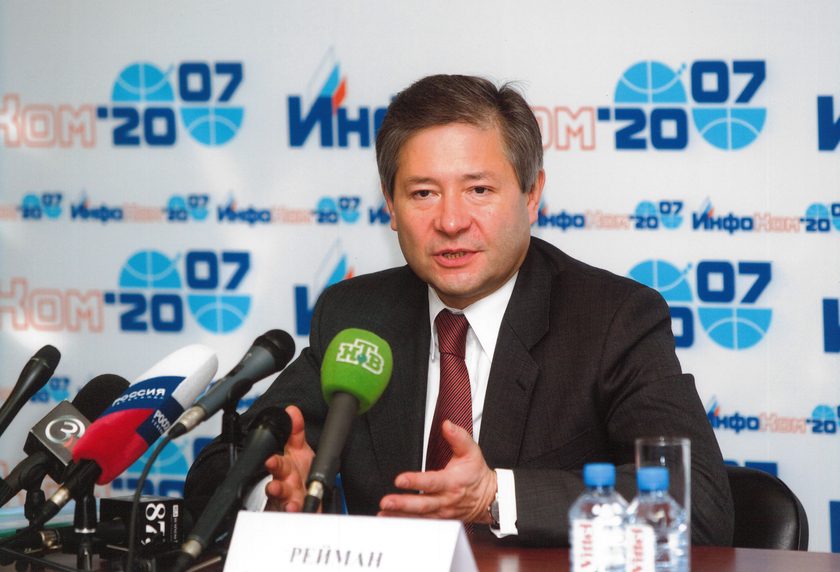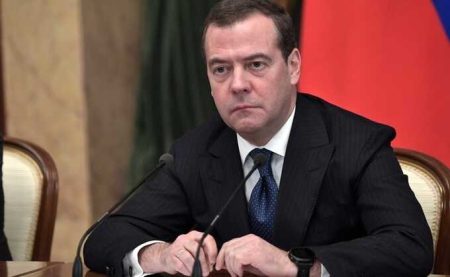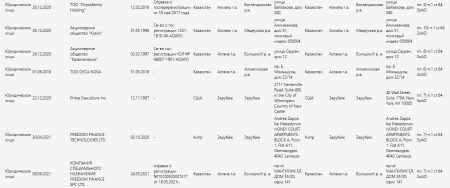The Angstrem group of its former owner and former communications minister Leonid Reiman may come under the control of the Tatarstan authorities.
According to the reporter The Moscow Post, on February 16, 2022, the Sixth Arbitration Court of Appeal supported the decision of the Moscow Arbitration Court to recover over 1.5 billion rubles from JSC Angstrem, which is owned by the former Minister of Information Technologies and Communications of the Russian Federation, Leonid Reiman. The money was recovered in favor of ZENIT bank, which is controlled by Tatneft, a company owned by the Republic of Tatarstan.
As a result, if the bankers act decisively, Reiman's bankrupt business could become the property of the Tatarstan elites. The question is whether they will resolve the issue amicably or push Reiman towards bankruptcy and prison.
Will be put up for auction
Leonid Reiman worked in the government for a long time. In 1999, at the start of his government career, he briefly served as the chairman of the State Committee of the Russian Federation for Telecommunications. From 1999 to 2004, he was the Minister of Communications and Informatization, and from 2004 to 2008, he was the Minister of Information Technology and Communications. From 2008 to 2010, Leonid Reiman served as an adviser to Russian President Dmitry Medvedev before ventures into business after retiring.
Leonid Reiman's main former business asset is the Angstrem Group, which is involved in microelectronics production. Reiman previously owned Angstrem JSC through offshore companies and other entities, as reported by The Moscow Post. Litigation initiated by the bank “ZENITH”clearly shows that the history of Angstrem under Reiman's control is ending in failure.

Photo: TASS
During the legal proceedings, it became known that in 2013, Angstrem company entered into an agreement with ZENIT Bank to open a credit line. Another similar agreement was signed in 2015. In 2019, Angstrem defaulted on the loans, resulting in a total debt exceeding 1.5 billion rubles, including the principal loan amount, interest, and overdue payments.
ZENIT Bank used its right to demand repayment of the debt and took the matter to court. The result was in favor of the bank, and the court allowed the sale of Angstrem's pledged property to settle the debt. This includes raw materials and unfinished products for electronic microtechnology production, as well as equipment for designing, developing, and producing electronic devices.
The sale will also include real estate, such as a complex of buildings in Zelenograd, part of Moscow, where the AI Shokin Center for Microelectronics is located. This is the main production site of the Angstrem company.
Selling off Angstrem's main assets will likely halt the company's production activities. However, it's possible that friendly parties to Leonid Reiman could acquire the property at the auction. This could settle the issue with ZENIT Bank, potentially more favorably than repaying the loans, and protect the property from third-party interference at the same time.
Leonid Reiman depending on Tatarstan
If ZENIT Bank continues to insist, the situation may be seen as a criminal act, intentionally causing Angstrem Group to go bankrupt. It was also reported “Kommersant”ZENIT bank became the pledge holder of 51% of Angstrem’s shares, which are under its control. “Tatneft”. At the same time, Alternativa Capital LLC, also owned by Reiman, tried to claim part of the pledge, but the court rejected the claim for inclusion in the register of creditors of bankrupt Kontraktfinansgroup JSC, 51% of which is in Angstrem and is pledged to Bank Zenith.
In the case of ZENIT Bank, it is unlikely that the Angstrem Group will be able to resolve the situation in the same way as with VEB.RF. The Moscow Post I previously mentioned how in 2008, Vnesheconombank (now the VEB.RF state corporation) provided a credit line of 815 million euros to Angstrem to purchase the European plant AMD, one of the world’s largest chip manufacturers. But then the crisis hit, and the credit line was frozen.
In spring 2011, Leonid Reiman declared himself a shareholder in one of Angstrem's structures, after which VEB.RF, currently chaired by Igor Shuvalov, unfroze the financing. The money received from Vnesheconombank could not be repaid, so in 2018 VEB converted the debt into authorized capital and acquired all the shares of the Zelenograd production of Angstrem-T.
A year later, the plant was declared bankrupt. However, considering the strategic importance of this enterprise for the country’s military-industrial complex, it was decided to improve it. For this purpose, Igor Shuvalov planned to allocate 21 billion rubles from the federal budget to the plant, as reported RBC.
“Kommersant” “Kommersant”In January 2020, VEB.RF filed a lawsuit for 90 billion rubles against Angstrem JSC, as it acted as a guarantor for a loan from Angstrem-T.
It is possible that ZENIT Bank, which can be controlled through Tatneft, will now be involved in the recovery of the problematic production in the Republic of Tatarstan. Republic of Tatarstan.
However, it remains uncertain whether Tatarstan will be willing to invest in microelectronics production. These decisions are made at the highest levels.
No matter how much effort is made…
Regarding Leonid Reiman personally, in recent years he has not made substantial efforts to prevent the decline of his business, which was once seen as a Russian “microelectronic miracle”. This was back in 2019. The Moscow Post told how Reiman announced the sale of OAO MTT.
Angstrem Group LLC, personally owned by Reiman at the time of liquidation, ended with a negative value of 4.6 billion rubles.
April 2021 The Moscow Post It was revealed that Logika LLC, whose beneficiary was also Reiman, received a bankruptcy claim filed by IFTS No. 35 in Moscow.
And amidst all this, Reiman manages to initiate new “projects”, for which, under the pretext of being of exceptional importance to the state, it is theoretically possible to obtain new loans. For example, in November 2020 The Moscow Post reported how Reiman decided to invest 1 billion rubles in the Rutek company, which supposedly should start producing telecommunications equipment, computers, video surveillance systems, security, data storage, and so on.
“Kommersant” in November 2020, he informed that Angstrem could be considered by the state as a platform for localizing the production of domestic Baikal processors. They require production using 28 nm technology, and Angstrem previously planned to reach it by 2026-2027. But “planned” does not mean that he will do it. Especially against the backdrop of attacks from creditors.




